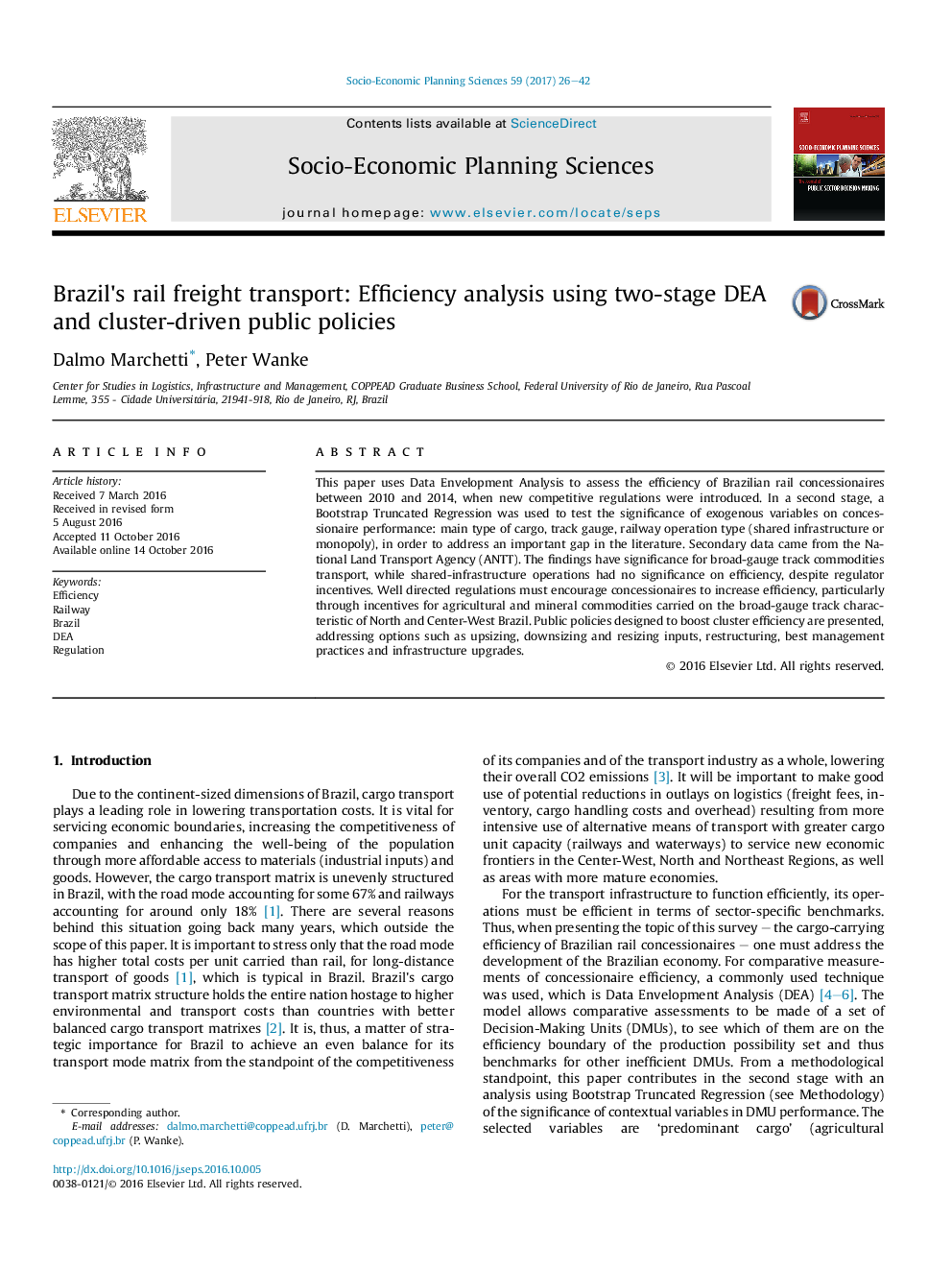| Article ID | Journal | Published Year | Pages | File Type |
|---|---|---|---|---|
| 5104433 | Socio-Economic Planning Sciences | 2017 | 17 Pages |
This paper uses Data Envelopment Analysis to assess the efficiency of Brazilian rail concessionaires between 2010 and 2014, when new competitive regulations were introduced. In a second stage, a Bootstrap Truncated Regression was used to test the significance of exogenous variables on concessionaire performance: main type of cargo, track gauge, railway operation type (shared infrastructure or monopoly), in order to address an important gap in the literature. Secondary data came from the National Land Transport Agency (ANTT). The findings have significance for broad-gauge track commodities transport, while shared-infrastructure operations had no significance on efficiency, despite regulator incentives. Well directed regulations must encourage concessionaires to increase efficiency, particularly through incentives for agricultural and mineral commodities carried on the broad-gauge track characteristic of North and Center-West Brazil. Public policies designed to boost cluster efficiency are presented, addressing options such as upsizing, downsizing and resizing inputs, restructuring, best management practices and infrastructure upgrades.
